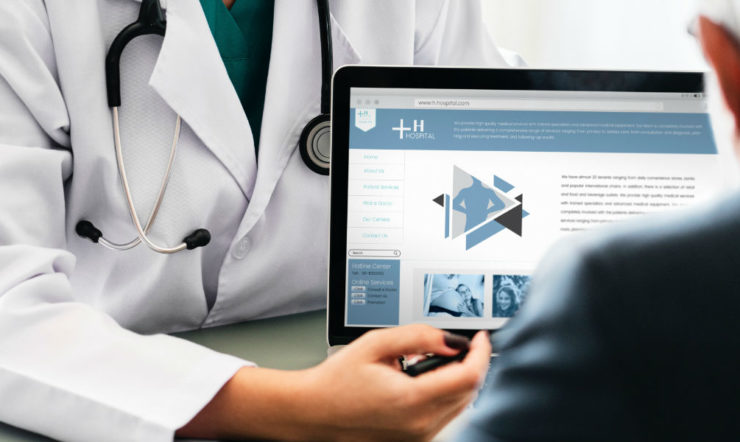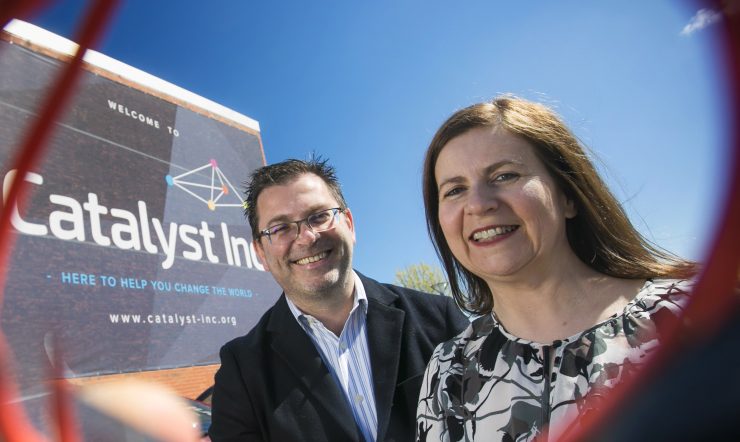The Economic and Social Research Institute (ESRI) and Microsoft Ireland have just released a new research report that details the potential impact of digital solutions in healthcare, with a specific look at experiences in Ireland within the Health Service Executive (HSE).
The following is a summary of the research report:
The report found two significant issues which had impacted on the readiness of the HSE for COVID-19.
- Gaps in health information systems and infrastructure: Across the world, a key barrier to COVID-19 surveillance and monitoring in many countries has been poor public health IT systems and data infrastructure.
- The report found significant gaps in Irish healthcare information systems and data infrastructure across the health system in Ireland. Even basic information, such as having a systematic minimum dataset for public healthcare services provided in the community, is still not in place.
- While the establishment of eHealth Ireland has led to many improvements, considerable investment and further advancements will be needed. The ESRI estimates that in 2021, less than 0.8 per cent of the public health budget is spent on eHealth and health technologies, similar to previous years and lower than peer countries who spend approximately 3 per cent of their healthcare budget on health technologies. “We do spend a lot on health care in this country, but percentage wise we spend less on information systems and on the health solutions in ICT than our peers in other European and Western countries. We’re spending a similar percentage to what we were about a decade ago,” said Dr Brendan Walsh, Research Officer, ESRI
- No universal Electronic Health Records (EHR) in Ireland. An analysis using the Health Care Quality Indicators (HCQI) Survey of Electronic Health Record System Development and Use, 2016, found that Ireland ranked the lowest of 30 OECD countries in technical and operational readiness for an EHR system.
Responding to COVID-19 through digital innovation
However, the experience of the COVID-19 public health emergency has also provided the catalyst for the rapid introduction of many new health technology features to improve the HSE’s emergency response.
The HSE embraced several new digital tools that not only provided flexibility, scale and responsiveness, but also helped the organisation to process and derive insights from significant amounts of data through the use of digital-based systems. The roll-out of these digital solutions assisted in delivering insights, facts and data in real-time in order to enable decision making, as well as support resourcing planning and the dissemination of information to the public.
Including:
- Cloud-Based Systems The Data Lake, built on the Microsoft Azure cloud-based platform, aided the collation of data from over 30 data systems and sources, including hospital testing laboratories, contact tracing centres, and critical-care bed data. Information collated was synthesised through dashboards to inform real-time decision-making across the system. This information-gathering and data synthesis supported the National Public Health Emergency Team (NPHET) in modelling COVID-19.
- The COVID Care Tracker using Microsoft Dynamics 365, enabled clinicians and contact tracers to engage with COVID-19 cases and also helps to record contacts of cases. Importantly, it reduced the reliance on the paper-based process of recording cases and contacts, and helped to regularly inform estimation of the COVID-19 reproductive number.
- COVID-19 Case Numbers: Microsoft Power Apps was used to build a portal to allow laboratories undertaking COVID-19 testing to report daily testing numbers and case numbers.
- A Reporting Dashboard for COVID-19 was developed using Microsoft BI. This provided regular updates on COVID-19 incidence. It was also used at local provider levels to inform resource planning, and, for example, provided real-time information on critical-care bed capacity.
- Artificial Intelligence – A Health Chatbot using AI-based technology was designed with input from clinicians to allow people to ask triage type questions about COVID-19. This was employed to help reduce the strain on clinicians and HSE staff responding to COVID-19-related enquiries. After answering triage questions, people were recommended a subsequent course of action, such as a follow-up call or isolation. Upon implementation, the Health Chatbot was receiving 30,000 unique users each day.
These innovations enabled the HSE to become the centre of a high-level group responsible for delivering reliable information and facts to the general public and key decision makers.
Roisin Doherty, HSE ICT Director Access to Information, said, “Because of health information systems we were able to monitor where the disease was travelling across the country, which allowed for operational decisions such as location of testing centres.”
Digital technology’s role in developing new digital healthcare solutions
Digital as a crucial part of health innovation: These innovations are vital features of Ireland’s pandemic response. Technological developments in a range of areas from telemedicine to cloud-based computing have improved the health systems’ ability to respond to the COVID-19 emergency. It also demonstrated the potential of eHealth for patients and decision makers including clinicians, public health officials and policymakers.
Digital’s benefits for healthcare: Resource-intensive applications such as medical imagery, and applications based heavily on communications such as telehealth, are highly suited to the use of cloud computing. The digital computing model of data infrastructure offers on-demand availability of large-scale computing resources and the reduction of up-front commitments by users required for establishing data systems.
Yvonne Goff, HSE National Director of Change and Innovation, said, “The COVID-19 patient pathway has shown the importance of data as a powerful and indispensable tool in the efficient management of the health system. The HSE is adapting to ensure we leverage data and technology to address other challenges within the Health Service, for example our waiting lists.”
Future Recommendations
It is worth noting that Sláintecare is the ten-year programme to transform Ireland’s health and social care services. It is the roadmap for building a world-class health and social care service for the Irish people. Sláintecare presents an opportunity to address many of the systemic issues in the Irish healthcare system, including a proportionate investment and commitment to an “appropriate ICT infrastructure”. And perhaps through the Resilience and Recovery Funds and post Covid plans, we can see some of the €3 billion Transitional funds being allocated to areas such as Virtual Care, Digital Workplace and Integrated Care. Such an investment will provide the much-needed momentum to develop the necessary systems to enable single tier access for all to quality care.
It is important to note that some improvements have occurred in recent years, not least the establishment of eHealth Ireland. However, the need to react in real-time to public health emergencies such as COVID-19, necessitates a greater role for HIS (Health Information Systems) and strong health data infrastructures to manage data efficiently across health systems.
The report advises that an integrated national Electronic Health Record is a key enabler of the collection, secure storage and confidential communication of health information within a health system. Integrating EHRs within a cloud-based system further improves the use and accessibility of such data. The report also notes that ensuring different ICT systems can be integrated with each other is required for an effective health management system in Ireland.
Covid driven innovations- such as the cloud-based data lake, the tracker portal, and the AI-based ChatBot- show what the system is capable of implementing in a short time. Further building upon and strengthening these improvements and successes will be required to continue to navigate the course of the pandemic and to meet the healthcare challenges of the post-pandemic era.
“The promise of data saving lives has never been more real,” concluded Elena Bonfiglioli, Regional Business Leader Health and Life Sciences .























